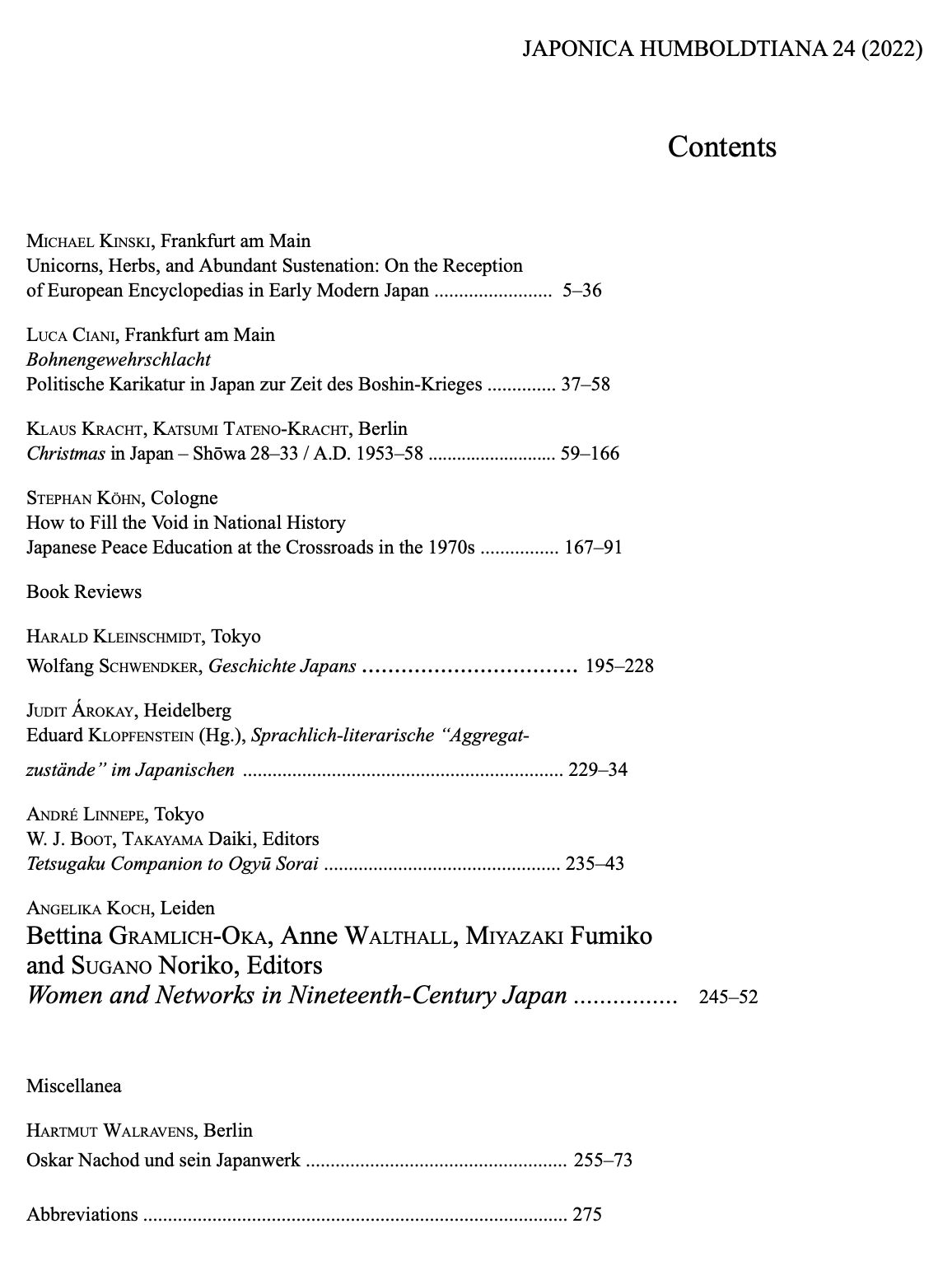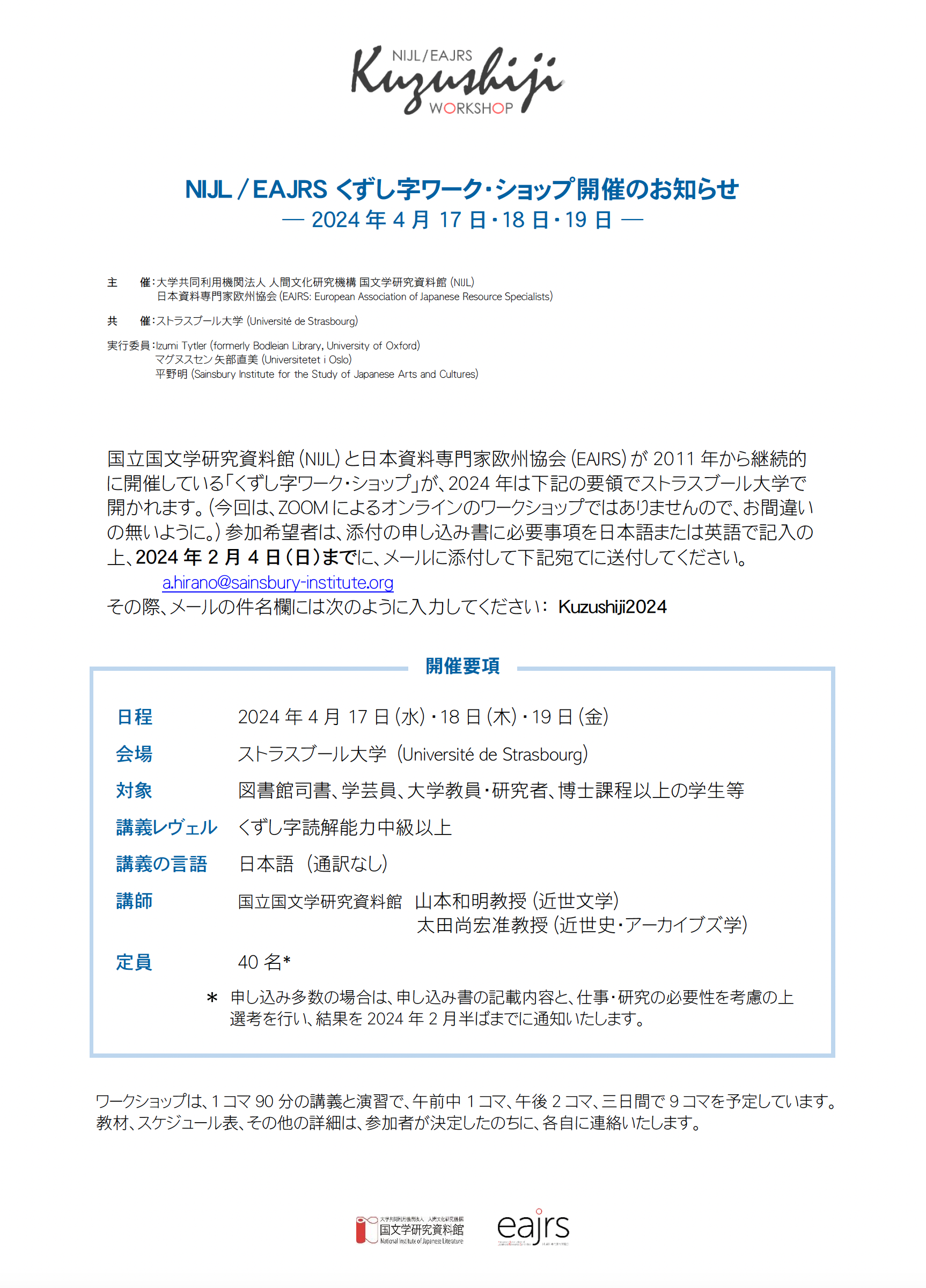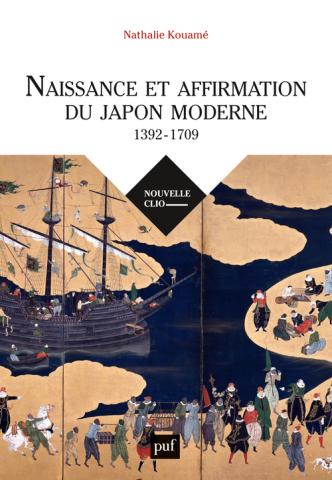Le numéro 25 de la revue Cipango comporte un dossier spécial coordonné par Isabelle Konuma et Hélène Le Bail autour du thème « Reproduction et migration au Japon« , ainsi que trois articles varia, des comptes-rendus d’ouvrage et résumés de thèse et mémoire. Vous trouverez le sommaire ci-dessous.
Le numéro est accessible en ligne sur le site de la revue : https://journals.openedition.org/cipango/5163.
Sommaire
Isabelle Konuma et Hélène Le Bail
Introduction[Texte intégral]
Isabelle Konuma
Sans identité transmise ? Le cas des apatrides au Japon[Texte intégral]How to Build a Legal Identity as a Stateless Person in Japan
Pauline Cherrier
De la peur du multiculturalisme à la valorisation du métissage : l’immigration brésilienne au cœur des discours identitaires japonais[Texte intégral]Japanese-Brazilian, mixed-race, nikkei and/or hāfu: how Brazilian immigration reshaped Japanese identity discourses
Amélie Corbel
Reproduire la communauté nationale[Texte intégral]Les régulations des mariages internationaux au Japon (1899-2017)Reproducing the national community: the regulation of international marriages in Japan (1899-2017)
Hélène Le Bail
Les migrations par le mariage au Japon : une forme d’importation de travail reproductif ?[Texte intégral]Marriage migrants in Japan: importing reproduction workforce?
Varia
Simon Tuchais
To omou et la mise en scène du discours intérieur[Texte intégral]Staging the inner discourse with to omou
Benoit Granier
Des instruments étasuniens dans la politique énergétique japonaise[Texte intégral]Le rôle clef des think tanks japonais dans la circulation des sciences comportementalesTools from the United States in Japan’s energy policy. The key role of Japanese think tanks in the circulation of behavioural sciences
Éric Seizelet
Le régime des prisonniers de guerre et le pacifisme constitutionnel dans le Japon contemporain[Texte intégral]The system of Prisoners of War and Constitutional Pacifism in Postwar Japan
Notes de lecture
Charlotte Lamotte
Giard Agnès, 2016, Un désir d’humain. Les love doll au Japon, Les Belles Lettres, Paris, Collection Japon, 375 p.[Texte intégral]
Éric Seizelet
Jaudel Étienne, 2010, Le procès de Tokyo. Un Nuremberg oublié, Odile Jacob, Paris, 156 p.[Texte intégral]
Philippe Pelletier
Singaravélou Pierre & Argounès Fabrice, 2018, Le Monde vu d’Asie, une histoire cartographique, Musée national des arts asiatiques Guimet & Seuil, Paris, 194 p.[Texte intégral]
Clara Wartelle
Tōru Takemitsu, 2018, Écrits, choisis et introduits par Wataru Miyakawa, préface de Kenzaburō Ōe, collection Symétrie Recherche, série 20-21, 464 p.[Texte intégral]
Mémoires et thèses
Majima Chikako, Le patrimoine culturel immatériel japonais. La préservation et la transmission de l’Ainu koshiki buyō, danse traditionnelle aïnoue[Texte intégral]Mémoire de M2, sous la direction de Caroline Bodolec, EHESS (Anthropologie sociale et ethnologie), 2017
Quirós Ignacio, Sens et fonctions de la notion de « koto » dans le Japon archaïque. Actes de parole, parole des actes[Texte intégral]Thèse de doctorat, sous la direction d’Alain Rocher, (EPHE), 2016
Tino Bruno, D’Hiroshima à Tōkaimura (1945-1957). Pour une histoire culturelle de la genèse du projet nucléaire civil japonais à travers les quotidiens Asahi Shinbun et Yomiuri Shinbun[Texte intégral]Thèse de doctorat, sous la direction de Jean-Pierre Giraud (Université Lyon 3), 2017, 639 p.
L’Hérisson Édouard, Trajectoires shintō et construction de la Mandchourie japonaise : spatialisation religieuse, expansion de l’empire et structuration du shintō moderne[Texte intégral]Thèse de doctorat, sous la direction de Michael Lucken (Inalco), 2020, 780 p.
Berthon Alice, Le Japon au musée. Le Musée national d’ethnologie et le Musée national d’histoire et de folklore : histoire comparée et enjeux[Texte intégral]Thèse de doctorat, sous la direction de Michael Lucken (Inalco), 2017
Ebersolt Simon, Contingence et communauté. Kuki Shūzō, philosophe japonais[Texte intégral]Thèse de doctorat, sous la codirection d’Emmanuel Lozerand (Inalco) et de Frédéric Fruteau de Laclos (Paris 1), 2017, 570 p.
Faure Éric, De Kyōto à Dazaifu : sur les traces de Sugawara no Michizane[Texte intégral]Thèse de doctorat, sous la direction de François Macé (Inalco), 2018
Mellet Xavier, La composition médiatique des populismes. Une comparaison France-Japon[Texte intégral]Thèse de doctorat, sous la direction de Dominique Boullier (IEP de Paris), 2016, 517 p.
Granier Benoit, La mobilisation des sciences comportementales dans la politique énergétique japonaise (2010-2016). Circulations transnationales et transformations de l’action publique[Texte intégral]Thèse de doctorat, sous la direction d’Yveline Lecler (Université Lyon 2), 2017, 528 p.
Clercq Lucien-Laurent, Transformations socioculturelles des Aïnous du Japon : rapports de pouvoir, violence et résistance aborigène à Hokkaidō[Texte intégral]Thèse de doctorat en anthropologie sociale et ethnologie soutenue sous la direction d’Augustin Berque (EHESS), 2017, 707 p.
Manigot Vincent, Universalité et surréalisme : le peintre Kitawaki Noboru (1901-1951) et les avant-gardes japonaises[Texte intégral]Thèse de doctorat, sous la direction de Michael Lucken (Inalco), 2018, 495 + 291 p.



